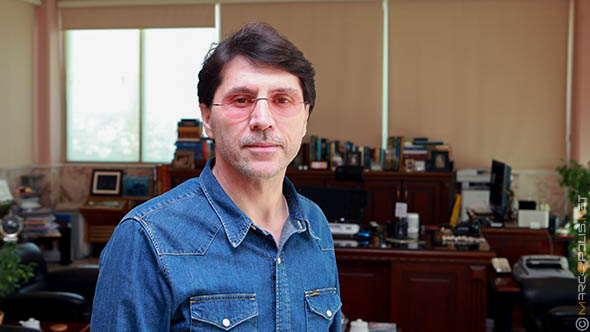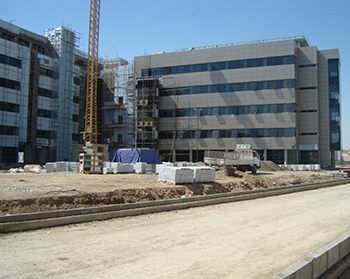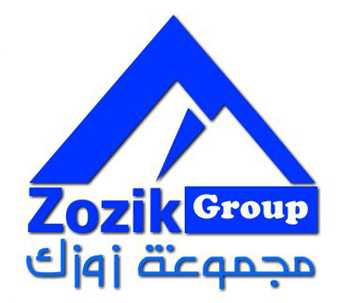Healthcare Sector in Iraqi Kurdistan Recording Double Digit Growth
A revival of the health care sector in Iraqi Kurdistan happened 6 or 7 years ago. Healthcare facilities in Erbil, including private hospitals, experienced an increased demand as, due to security concerns in Iraq, more and more patients from different regions of Iraq started to come for treatment. In that time, Zozik Group opened its Soran Hospital. At present, Soran Hospital has 50 beds, 6 operation rooms, an IVF section, and all the other specializations except for the open heart operations and brain surgeries.

Can you give us a brief overview on the health care sector in Iraqi Kurdistan and whether you have primary or secondary health care? What is the number of hospitals you have? What is the ratio between the involvement of private sector and public sector? How many beds are needed to satisfy the demand?
To begin with, Zozik Group started work 5 years ago, and besides healthcare, we cover many areas of which the most important is the construction. In Iraq, generally, and particularly in Iraqi Kurdistan, health care sector started to revive about 6–7 years ago. In Erbil for example, all new private hospitals started working about 6-7 years ago, and there wasn’t any private hospitals at this level of proficiency before that, maybe 2 or 3 only. After that, and because of the deteriorating security situation in the rest of Iraq, people started to come from the middle and south of Iraq for treatment. It was easier and cheaper for them to come to Erbil and because of that there was an increased demand on hospitals here. Accordingly, companies started to head for health care sectors and more than 10 hospitals were opened including Soran Hospital, the one you are in now.
Zozik Company started work in health sector about 5 years ago and the first project we did was Soran Diagnostic Centre for radiology and lab tests in collaboration with Siemens Company and we brought orthopaedic specialists among others. The second project in health sector for Zozik Company was Soran Hospital with 50 beds covering all specialties except for cardiology, open heart operations and brain surgery. Erbil now needs more hospitals because of people coming from the middle and the south and also because the specializations we have are not enough, and thus we are obliged to bring doctors from Lebanon, Turkey, Jordan and sometimes from Iran, not mentioning the doctors we receive from Europe.
 What is the ratio of public and private sectors involvement in Iraq? For example, in Kuwait, 90% of hospitals are public and only 10% are private, what about Iraq?
What is the ratio of public and private sectors involvement in Iraq? For example, in Kuwait, 90% of hospitals are public and only 10% are private, what about Iraq?
In the meantime, public hospitals in Iraqi Kurdistan do not outnumber the private ones and its services started to improve and we can see 2 – 3 emergency hospitals opened lately. Also, old hospitals are being renovated and new services are added to them with new staffs. So, performance of public health sector is improving. However, private sector services are still better and more important
Do you have an idea about the ratio?
No, I don’t but public sector hospitals are less than the private sector ones. I can give you names like Aljumhoory hospital, Rezgary hospital, where these are the big ones, the emergency first and second hospitals. The rest are dispensaries.
What is the number of beds Iraqi Kurdistan needs to meet the need of the area?
I can’t give a precise number but the hospitals currently available are not enough for the patients we receive and you can see that there are new hospitals being built in Erbil, so we still need more hospitals. I can’t give a certain number of beds, but I can say that there are 5-6 big hospitals are currently being built. They may be done in a year or two, so we still need more hospitals.
Let’s talk about health insurance and what do you think about the new health care law supposed to be passed in 3 months from now?
Unfortunately, we don’t have a health insurance, and patients have to pay expenses of their treatment. However, there are organizations and other parties that support patients financially. We hope there will be health insurance in the future.
There are many new laws but we are not supposed to talk about them yet.
What are your areas of specialties? Where do you stand out?
Soran Hospital started out as a plastic surgery hospital and the presence of Dr. Mudhar Ali Ameen, who is one of the most important plastic surgery specialists in Iraq, attracted other big doctors from different specialties.
Soran Hospital collaborates with many other hospitals from Turkey, Iran, and Italy.
Soran Hospital started out as a plastic surgery hospital and the presence of Dr. Mudhar Ali Ameen, who is one of the most important plastic surgery specialists in Iraq, attracted other big doctors from different specialties. So, the hospital started out with 28–30 beds, but because of the big number of important doctors, local or non-local, being attracted from different areas like Mosul or Baghdad, asking to work at the hospital, we upgraded it and increased the facilities like the IVF, orthopaedics, physical therapy and the total number of beds was 50. We also added new things to the plastic surgery division.
Can you talk more about your health recognition or certificates from international parties like the UK or US? Also, have you received any awards?Soran Hospital now has 50 beds, 6 operation rooms, an IVF section, and all the other specializations except for the open heart operations and brain surgeries.
Soran Hospital collaborates with many other hospitals from Turkey, Iran, and Italy. They send us doctors to operate in Soran Hospital and do tests at Centre Soran, but there is no further collaboration with foreign hospitals. This actually saves people the extra expenditures spent when travelling abroad for medical treatment. Also, it makes things easier for them because of the visa procedures and so on.
How many operations do you perform annually?
As far as I know, no less than 20 operations are being performed at Soran Hospital daily in the different specializations, but when people have time, like on holidays, the number of operations performed daily increases to 30 or 40 and doctors have to stay late after midnight and we even open operations room during night time.
What is your expansion strategy?
As for Zozik Group, we are planning to expand in the health sector. We have a project to build a big hospital or a big health spa outside the city because specialties are limited in Soran Hospital, and there are many other specialties that we didn’t reject but postponed work on. Work on health sector will expand soon, hopefully, with a higher level of performance.

What are the main difficulties you are facing? Is it financing or attracting qualified staff for instance?
When there is an increased demand on a certain specialty and when local doctors can’t meet the need of patients with their big number, we invite doctors from outside Iraq like from Lebanon to help. There are usually no difficulties, except for some logistic difficulties faced sometimes, otherwise government is usually cooperative to some extent.
There are many expats and people from the west who are interested to invest here, and they bring expats with them. Is that your target? Are you targeting the expats community to be treated here in Erbil?
When economy started to boom in Iraqi Kurdistan, and when projects increased, we saw that many Kurdish expats or the wealthy people who live in Europe or anywhere else outside Iraq, started investing in Iraq and especially in Iraqi Kurdistan. This was very encouraging and we saw that they were being attracted.
What’s your vision for Iraqi Kurdistan? Some people say it will be the next Dubai.
Apparently, everybody thinks and hear others say that Erbil is a smaller Dubai. This can be true to some extent. If you take a tour in Erbil or Sulaimaniyah, you’ll find a lot of projects being executed like housing projects, hospitals, malls and restaurants. We hope it will resemble Dubai in the future and become a smaller Dubai. Why not?